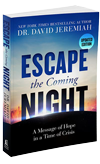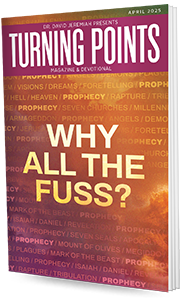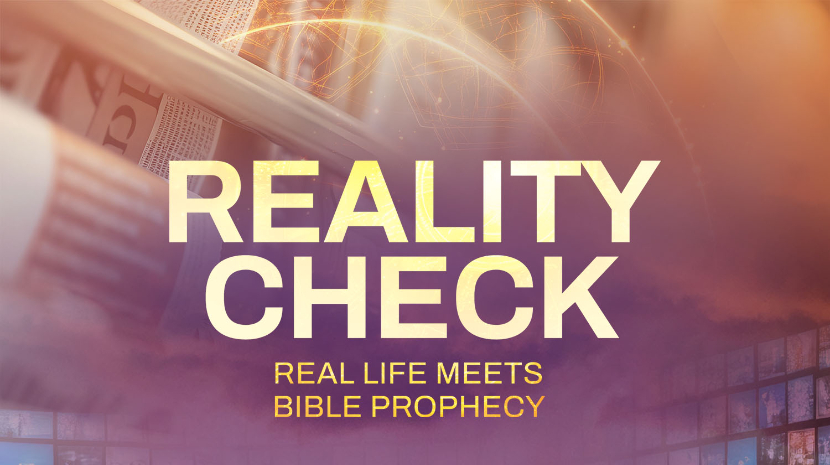From the February 2020 Issue

Why Look Back?
One of the most famous pieces of advice given by mentors to their protégés is, “Don’t look back!” I can see that being good advice in lots of unique situations: bungee jumping, skydiving, your first taste of a Carolina Reaper red chili pepper (the world’s hottest), and cliff diving off Havasu Falls in the Grand Canyon. We would all agree, in those situations there is no looking back.
On a more serious note, “Don’t look back!” can generally be good advice in less dramatic areas of life as well. Said another way, it means, “Live with no regrets. When you make a decision, be confident; stand by your choice. What’s done is done. Move forward in life, not backward.” We’ve probably all given our children some version of that advice along the way. And in the right setting, it’s good advice.
the present generation can learn a thing or two by looking back.
When you make an important choice in life, you’ve done your research; you’ve prayed; you’ve sought counsel and advice—and you pound a stake in the ground and decide. So don’t look back!
But what about when you’re preparing to make the decision? What about when you want to know how to build a life of character, success, and impact? Regardless of the field of endeavor, there is great wisdom in looking back through history to glean the principles and priorities of those who have come before.
I know there is widespread agreement on this idea of looking back. All you have to do is go to Amazon.com and search, “who changed the world” in the “books” section, and you’ll get scores of pages listing books dealing with people who changed the world: missionaries, statesmen, scientists, women, politicians, historical figures, military leaders, thinkers, religious leaders, and on and on. It seems to be universally agreed upon that the present generation can learn a thing or two by looking back.
So why look back? Because when it comes to shaping the future, the decisions we make in the present can be informed by those in the past who had to make similar decisions in similar circumstances under similar pressures.
If we want to be world changers today, we need to look back and see what we can learn from those who have come before us.
And because the Bible is the most accurate mirror of the human condition in the world—it records not only what to imitate but also what to avoid—we spend our lives mining its riches: its teachings, its people, its examples, and its lessons. If we want to change our world for Christ, there is no better place to look than to those who changed it as they lived in concert with God.
So, for the next three months, we’re going to look back at people who lived in chaotic cultural settings much like our own: Daniel and his friends in Babylon, Jesus and His disciples in the first century, and the followers of Christ leading up to today.
No person or institution changed the world the way Jesus Christ and His Church have. If we want to be world changers today, we need to look back and see what we can learn from those who have come before us.
We begin this month with Daniel and his three friends: Shadrach, Meshach, and Abed-Nego—four young Jewish men plucked from their lives of privilege in Jerusalem only to be put down in the midst of pagan Babylon. But instead of Babylon changing them, they changed Babylon! If we want to know how, we need to look back at their lives.
More Articles
This Month's Magazine Resource

Escape the Coming Night
Studying biblical prophecy might seem overwhelming, especially diving into the book of Revelation. But as Dr. David Jeremiah walks you step by step through Revelation, you will uncover the meaning of terms and events and gain a deeper knowledge of Bible prophecy.
Subscribe Now
Each month, read articles and devotionals from Dr. David Jeremiah that will encourage, challenge, and strengthen your walk with the Lord.













 Turning Point for God is a tax-exempt, not-for-profit, religious corporation as defined under Section 501(c)(3) of the Internal Revenue Code. Your donation gift(s) are very much appreciated and may qualify as a charitable deduction for federal income tax purposes.
Turning Point for God is a tax-exempt, not-for-profit, religious corporation as defined under Section 501(c)(3) of the Internal Revenue Code. Your donation gift(s) are very much appreciated and may qualify as a charitable deduction for federal income tax purposes.




